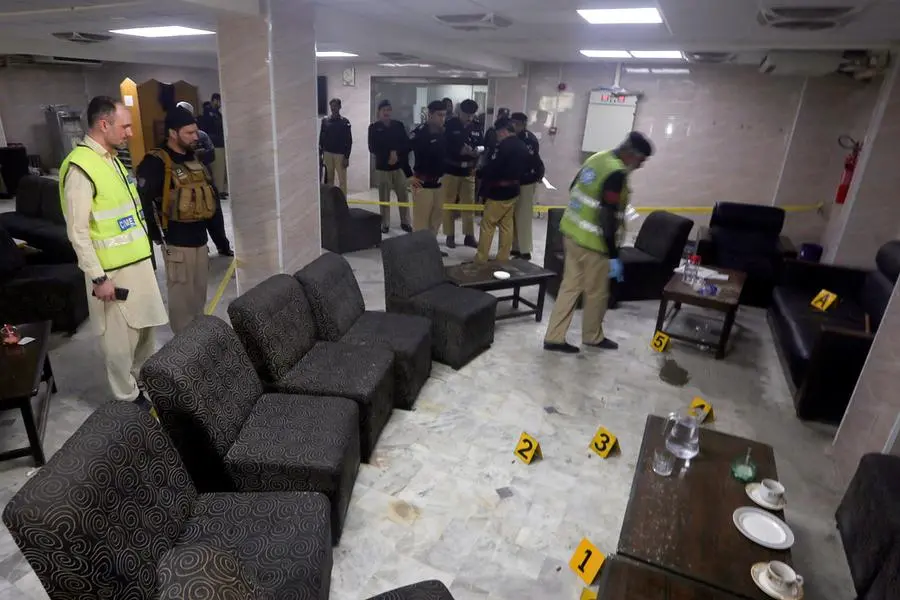PHOTO
A Pakistan court on Monday cleared more than a dozen police officers of the 2018 killing of a Karachi shopkeeper, his family lawyer said, a shooting which caused national outcry over police abuse.
Rights groups have long accused Pakistan's police of orchestrating so-called encounter killings, staging shoot-outs with suspects in order to pursue extrajudicial executions.
In January 2018, Rao Anwar -- a senior superintendent with a string of allegations against him -- led a raid on a suspected Pakistani Taliban hideout in the port city of Karachi.
Four men were killed, including 27-year-old Naqeebullah Mehsud, whose family rejected claims of militant links and said he was working in retail while pursuing his dream of modelling.
Soon after his death, Mehsud's modelling portfolio went viral on social media sparking protests in several cities led by thousands of members of his Pashtun ethnic group.
The nation's chief justice intervened in what was a rare case of accountability in deeply corrupt Pakistan.
On Monday, an anti-terror court convened in Karachi's central prison "acquitted all the accused including Rao Anwar", Salahuddin Panwar, the Mehsud family lawyer, told AFP.
In total 18 people, all law enforcement officials, were on trial.
Panwar pledged to challenge the verdict in a higher court.
Speaking to domestic media after his release, Anwar said "a false case has today reached its logical end".
The southern city of Karachi, home to more than 15 million, was once a hive of militant activity. But a police crackdown starting in 2013 led to a dramatic downturn in violence.
Still, in 2022 Human Rights Watch said "Pakistan law enforcement agencies were responsible for grave human rights violations, including detention without charge and extrajudicial killings".
"The government continued to do little to hold law enforcement agencies accountable for torture and other serious abuses," it said.




















